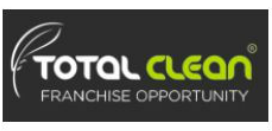Introduction
South Africa’s health and wellness industry has seen a significant boom, driven by an increasing focus on self-care, fitness, and holistic well-being. Franchises offer a solid entry point for entrepreneurs looking to dive into this lucrative market. However, understanding the franchise fees and financing options available is crucial to making an informed investment decision.
Understanding Franchise Fees
Franchise fees are a critical consideration for anyone looking to buy into a health and wellness franchise. These fees typically include an initial fee, ongoing royalties, and sometimes a marketing fee. Let’s break these down:
1. Initial Franchise Fee: This one-time payment grants you the right to operate under the franchise brand. This fee can vary widely in the health and wellness sector, and this fee can vary widely depending on the brand, its market presence, and the support provided. For example, a well-known brand like Dream Nails Beauty may charge a higher initial fee due to its established reputation and customer base.
2. Ongoing Royalties: Once you’re up and running, you’ll likely pay a percentage of your total revenue back to the franchisor as a royalty. This fee covers the franchisor’s ongoing support, training, and brand maintenance provided by the franchisor. For health and wellness franchises, this could range from 5% to 10% of your monthly sales.
3. Marketing Fees: Many franchisors require contributions to a national marketing fund to maintain brand visibility. This fee is usually a percentage of your sales and is used to promote the brand on a broader scale. In the competitive wellness industry, effective marketing is vital to attracting and retaining customers, and it’s well worth it to contribute to the Franchise Marketing Fund.
Financing Options for Health and Wellness Franchises
Once you understand the costs involved, the next step is financing your venture. Fortunately, several options are available to South African entrepreneurs:
1. Traditional Bank Loan: Many South African banks offer business loans designed explicitly for franchising. These loans typically require a detailed business plan, proof of your business’s ability, and a deposit. Commercial banks like Nedbank have franchise finance divisions that can assist with tailored loan packages.
2. Franchisor Financing: Some franchisors offer financing options to help franchisees get started. These can include a loan, a deferred payment plan for the initial franchise fee, or even assistance in securing financing through preferred partners. This option can be particularly beneficial if you’re committed to a specific brand or an employee interested in buying a franchise.
3. Government Grants and Funding: The South African government, through agencies like the Small Enterprise Finance Agency and the National Empowerment Fund, offers funding solutions for small businesses, including franchises. These grants and loans often come with favourable terms, making them an attractive option for new franchisees.
4. Private Investors or Venture Capital: Private investors or venture capitalists may be willing to finance your franchise if you have a strong business plan and the right connections. This option can provide the capital needed without the immediate pressure of repayments, though it often involves giving up some equity or control.
5. Bootstrapping: If you cannot secure financing or prefer not to take on debt, bootstrapping—using personal savings or contributions from friends and family—might be the way to go. While riskier, this option allows you to maintain full ownership and control of your franchise.
Choosing the Right Option for You
Selecting the right health and wellness franchise in South Africa involves more than just assessing the initial costs and potential profits. You must consider the brand’s long-term viability, the franchisor’s support, and your ability to finance the venture. Take the time to research each financing option, understand the associated risks, and seek advice from financial advisors or franchise consultants.
Conclusion
The health and wellness sector offers promising opportunities for entrepreneurs in South Africa, but it requires careful planning and informed decision-making. By understanding franchise fees and exploring various financing options, you can position yourself for success in this thriving industry.










